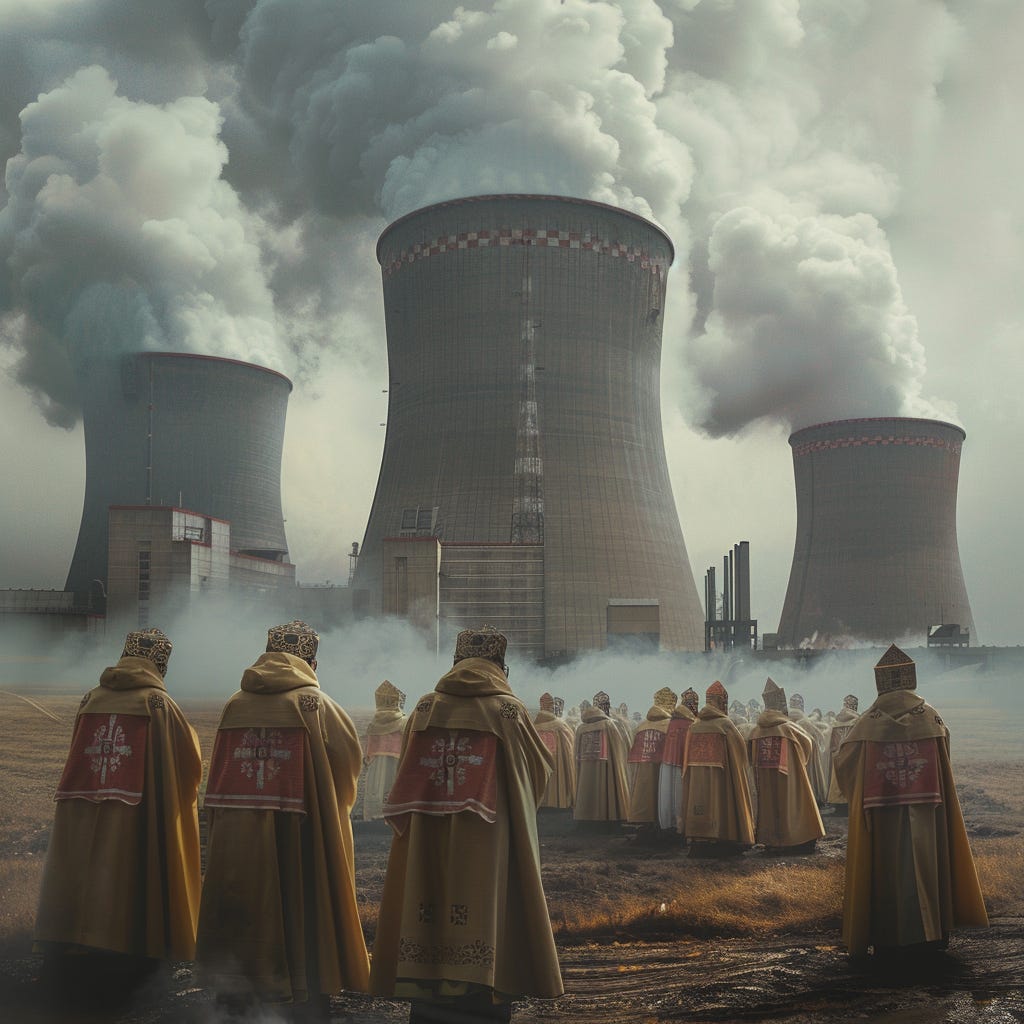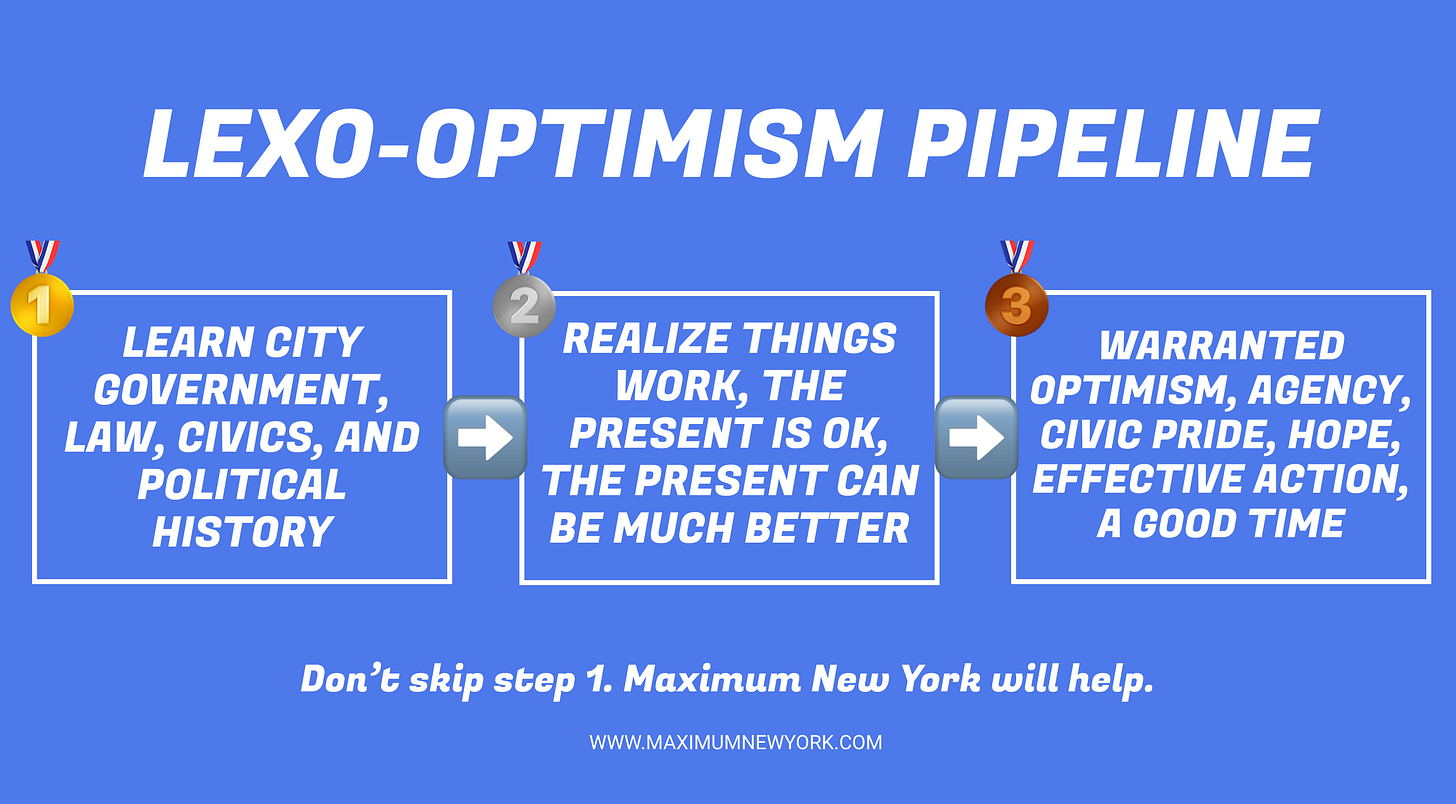In Isaac Asimov’s Foundation, a planet’s nuclear power plants are run by an order of priests. They are trained to operate the plants as if they are divine objects surrounded in ritual, and they do not understand the actual science or engineering behind the plants.1
To regulate a reactor, you ritualistically press buttons in a certain way, after consulting the ethereal mood rendered in a gauge displaying the temperament of the Almighty, etc.
You can see how a nuclear plant might be able to last a long time if it were operated by conscientious priests of this sort. They wouldn’t be able to build a plant of their own, improve the one they had, or repair any significant defect with it, but they could maintain a plant over the long arc of its slow, inevitable degradation.
If, one day, they pushed a button according to ritual, and their ritual failed (the mechanism activated by the button failed), that could be the end of it.
The only way to remedy this state of affairs is to train a new generation of scientists, engineers, and technicians in science, math, and engineering. This is beyond the power of the priests, of course.
The Foundation Effect
The Foundation Effect is described above: a civilization loses the ability to understand its own technology. It can’t rebuild it. It can’t fix it after significant damage. It can’t improve upon it. It can only use it via heuristic until it breaks.
This happens with social technology as well as material technology, and I wrote about the social tech phenomenon in Atlantis on the Hudson:
New York City’s Foundation Effect
Although there are many smart people working in New York City’s civic sphere, there are not enough. It is a machine with far too few knowledgable technicians, and too many technician-priests; uncomfortably large portions of it have fallen to The Foundation Effect. One prime example: community boards.
This, however, should not be cause for pessimism. It’s quite fixable.
On the planet from Foundation that I described above, there was no native way to reboot atomic technology aside from relearning physics and engineering from the ground up. That would take generations, if it happened at all.
But New York City has plenty of great people who can just teach the rest how to renew their city, their government, and their law. We’re in a massively better position. Lexo-optimism—hope in the power of government and law to increase human flourishing—is the warranted position.
Excelsior.
See “Part III: The Mayors,” and the discussion between the Mayor and a Councilman of Terminus about balancing power between The Four Kingdoms.






